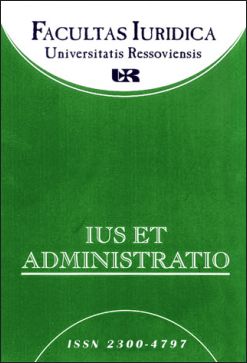Separation prerequisites on the ground of the Common Austrian Civil Code from 1811 at the area of the former Austrian annexed territory in Poland in the interwar period
Keywords:
ABGB, separation, divorce, marriage law, marriageAbstract
The Common Austrian Civil Code from 1811 (ABGB) binding at the area of the former Austrian annexed territory in the interwar period. This Code admitted separation on a consistent motion of the parties and separation without a consistent motion of both parties. The subject of this paper is analysis of the prerequisites from article 109 ABGB on grounds of which court could adjudge separation of marriage without a consistent motion of the parties. The author has undertaken an effort to compare this problem with the separation prerequisites existing in the remaining legal systems binding at the territory of the Polish State in the interwar twenty years. The essential part of the publication constitutes the analysis of adjudgments of the Polish Supreme Court from years 1917-1939 in this scope, enriched by adjudgments of Austrian courts. There were also presented opinions of the contemporary civil law experts concerning admissibility of a judgement of separation after arising circumstances determined in this code, e.g. adultery, committing an offence, abandonment of a spouse or a spouse’s disease.
Downloads
Downloads
Published
How to Cite
Issue
Section
License
Copyright (c) 2018 Ius et Administratio

This work is licensed under a Creative Commons Attribution-NonCommercial-NoDerivatives 4.0 International License.

